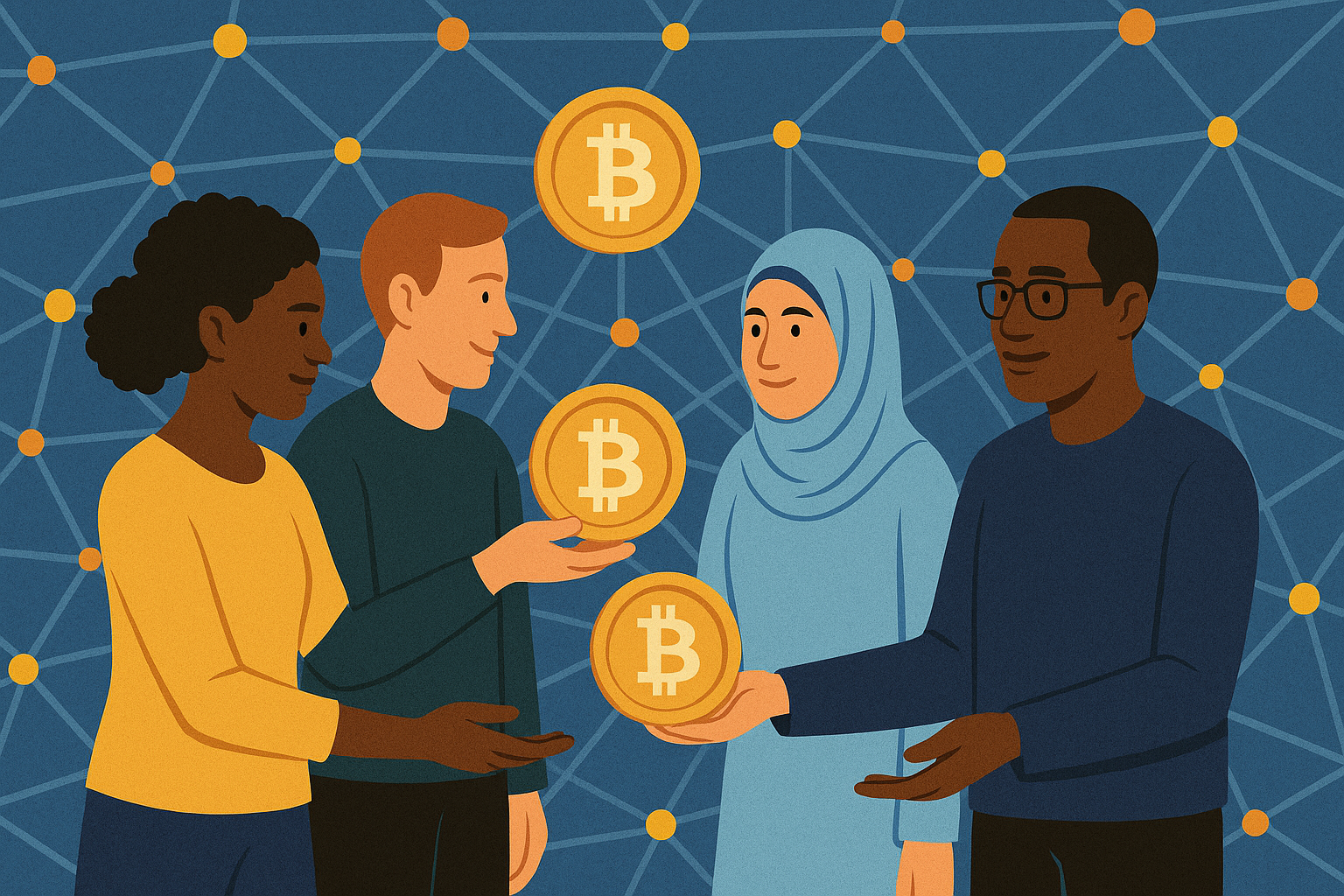In the wake of the 2008 global financial crisis, an anonymous person (or group of people) named Satoshi Nakamoto published a white paper titled “Bitcoin: A Peer-to-Peer Electronic Cash System.” This marked the birth of Bitcoin — not just as a technology, but as a movement for financial independence, transparency, and freedom.
Why Bitcoin Was Created
Satoshi’s core insight was that our monetary system relies too much on trust in institutions that often fail us — central banks, commercial banks, and governments that control the supply of money, sometimes recklessly.
“The root problem with conventional currency is all the trust that’s required to make it work… But the history of fiat currencies is full of breaches of that trust.”
— Satoshi Nakamoto, 2009
Satoshi envisioned a system where no single entity could manipulate the money supply, censor transactions, or require permission to participate. A system grounded in math, transparency, and individual sovereignty.
How Bitcoin Works (simply explained)
Bitcoin is digital cash, transferred directly from one person to another without needing a bank or third party. It runs on a public, decentralized network — meaning:
- 🧾 Every transaction is recorded on a shared ledger called the blockchain.
- 🛡️ The network is secured by a system called proof-of-work, which rewards participants (miners) for validating and securing the ledger.
- 🔐 Only you control your coins — with no one able to alter the record, freeze your account, or inflate the supply.
The total supply is capped at 21 million, preventing inflation and encouraging long-term stewardship — a radical departure from today’s ever-expanding money supply.
Satoshi’s Values and Vision
Though Satoshi vanished in 2011, they left behind a trail of emails and forum posts that reveal a clear ethos:
- Empower the individual: Bitcoin is for anyone — not just the wealthy, the banked, or the privileged.
- Resist financial censorship: Satoshi emphasized the need to build a system that can’t be shut down by political or corporate actors.
- Don’t trust — verify: The rules are enforced by code. You can see how it works. You don’t have to trust anyone.
- Enable peaceful change: Bitcoin is nonviolent — it doesn’t overthrow the system; it builds an alternative.
“It’s very attractive to the libertarian viewpoint if we can explain it properly… but I’m better with code than with words.”
— Satoshi, 2008
But this vision is also deeply compatible with progressive values: decentralization of power, financial inclusion, and systemic reform.
Why Bitcoin Matters to Progressives
For progressives, Bitcoin offers not just a new form of money — but a new kind of freedom infrastructure:
- 🏦 Financial inclusion: Over 1 billion people are unbanked. Bitcoin gives them a way to save and transact without institutions that often exclude them.
- 🕊️ Civil liberties: Bitcoin protects speech and association by making donations and protest-support censorship-resistant.
- 🌎 Human rights: From Nigeria to Venezuela to Ukraine, Bitcoin helps people flee collapsing economies or oppressive regimes.
- ⚡ Innovation for good: While proof-of-work consumes energy, it also incentivizes clean energy innovation by rewarding miners who use the cheapest (often renewable) power. Bitcoin can help balance grids and fund sustainable infrastructure in underserved areas.
- 💡 Rules Not Rulers: No single person or party can change the rules. Bitcoin is governed by open-source code and consensus — not backroom deals.
Satoshi built a monetary system that is public, neutral, and global by design — and gave it to the world for free.
In Summary
Bitcoin is money for anyone with no gatekeepers = complete financial inclusion and freedom.
It doesn’t discriminate. It doesn’t inflate away your savings. It doesn’t ask permission. And it doesn’t rely on fragile institutions to function.
Bitcoin represents one of the boldest experiments in digital transparency, inclusion, and economic justice of our time.
“If you don’t believe me or don’t get it, I don’t have time to try to convince you, sorry.”
— Satoshi Nakamoto
Satoshi’s frustration may have lied in the fact that the currently global financial system is so clearly broke and consistently rewards the wealthiest and most powerful few. But maybe now, you do get it.
Further Reading for Newcomers
- 🧾 Read the Bitcoin White Paper (9 pages, surprisingly readable)
- 🔎 Satoshi Nakamoto’s Emails and Forum Posts
- 📚 A Progressive’s Case for Bitcoin by Jason Maier, TPB’s Director of Education
- 💡 Check Your Financial Privilege by Alex Gladstein (Human Rights Foundation)

Trey Walsh is a fervent progressive and Bitcoin advocate, with an extensive background in the nonprofit sector, leading initiatives aimed at workforce development and poverty alleviation. His journey into the world of Bitcoin was sparked by its potential to advance human rights and social justice.




